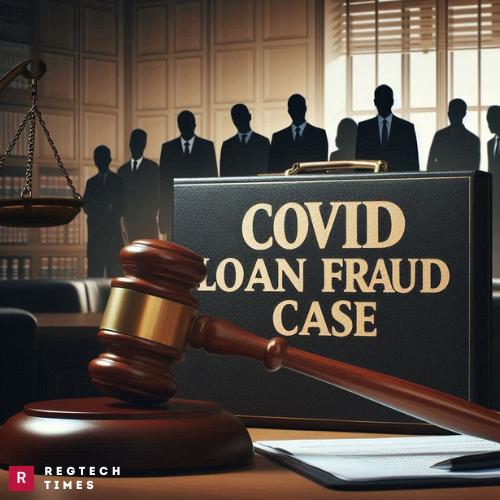A man named Stephen L. Gurba, 68, from Belleair, Florida, has been indicted for committing serious fraud related to loans meant to help businesses during the COVID-19 pandemic. This case reveals how someone can exploit a tragic situation for personal gain, using deceptive tactics that have now landed him in legal trouble.
The Fraudulent Scheme by Gurba
According to the legal documents, Gurba is facing several serious charges. He has been indicted for wire fraud, making false statements to a financial institution, and aggravated identity theft. These are not minor accusations. If he is found guilty, he could face a long time in prison—up to 20 years for each count of wire fraud and 30 years for making false statements. Additionally, there is a mandatory 2-year prison term for each count of aggravated identity theft.
The fraud took place between March and June of 2020, when Gurba applied for Economic Injury Disaster Loans (EIDL). These loans were designed to help businesses that were struggling due to the pandemic. However, instead of using his own information, Gurba falsely used the identity of a former business partner who had passed away in 2019. He listed this deceased partner’s name, signature, and other personal details on the loan applications, pretending to be him. This was a crucial part of his scheme, as it allowed him to gain access to funds that he was not entitled to.
Gurba went even further by forging his late partner’s signature on various loan documents submitted to the Small Business Administration (SBA). He continued to pretend to be his deceased partner during communications with the SBA, which shows the extent of his deceitful actions. Thanks to his fraudulent efforts, Gurba was able to secure loans for his companies, Big Red Express Trucking, LLC, and Zenith Express, LLC.
Zishan Alvi: The $14 Million COVID-19 Testing Fraud Case Uncovered
Misusing Relief Funds
In addition to the EIDL loans, Gurba also applied for a Paycheck Protection Program (PPP) loan for one of his businesses. The PPP loans were designed to support businesses in maintaining their workforce during the pandemic. Gurba certified that he would use the money only for payroll, rent, and other permitted expenses. However, he did not keep his promise. Instead of spending the funds as required, Gurba misused most of the money for his own benefit and that of his family. He even used it to pay off unrelated business debts and for expenses that were not allowed.
As a result of Gurba’s false statements and fraudulent activities, a financial institution approved a whopping $955,448.75 PPP loan for Big Red. This was a significant amount that could have helped genuine businesses in need, but instead, it went into Gurba’s pocket.
The Legal Consequences
The indictment against Gurba is a formal charge indicating that he is suspected of committing serious crimes. However, it’s important to note that an indictment does not mean he is guilty. In the eyes of the law, Gurba is presumed innocent until proven guilty. The case is being prosecuted by Special Assistant United States Attorney Chris Poor, who is working hard to ensure that justice is served.
This incident has drawn attention to the COVID-19 Fraud Enforcement Task Force, which was established by the Attorney General on May 17, 2021. This task force works to coordinate efforts among various government agencies to investigate and prevent fraud related to pandemic relief programs. Their goal is to uncover and prosecute those who take advantage of the situation, just like Gurba allegedly did.
The investigation into Gurba’s activities was conducted by the Federal Housing Finance Agency – Office of Inspector General and the Small Business Administration – Office of Inspector General. These agencies are dedicated to protecting the integrity of government programs and ensuring that funds are used as intended.
Stephen L. Gurba’s indictment for COVID loan fraud highlights the challenges authorities face in preventing fraud during times of crisis. His actions have not only jeopardized his future but also serve as a stark reminder of the lengths some individuals may go to exploit systems designed to provide help during difficult times. The case will continue to unfold as the legal process takes its course, but it stands as a significant example of pandemic-related fraud.


